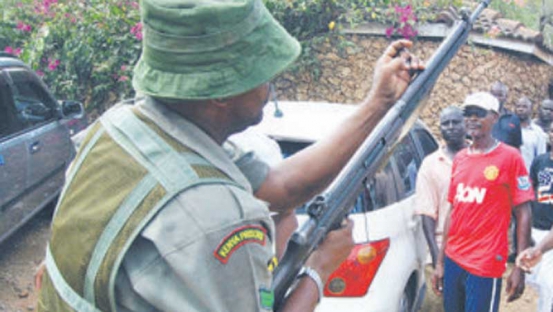×
The Standard e-Paper
Kenya’s Boldest Voice

The Government is assembling a huge security machinery to man the General Election after narrowing down to 20 counties prone to violence.
The counties include Nairobi, Kisumu, Mombasa, Nakuru, Uasin Gishu, Narok, Kisii, Homa Bay, Isiolo, Turkana, Bungoma, Kiambu, Kilifi, Lamu, Migori, Baringo, West Pokot, Elgeyo Marakwet and Meru.